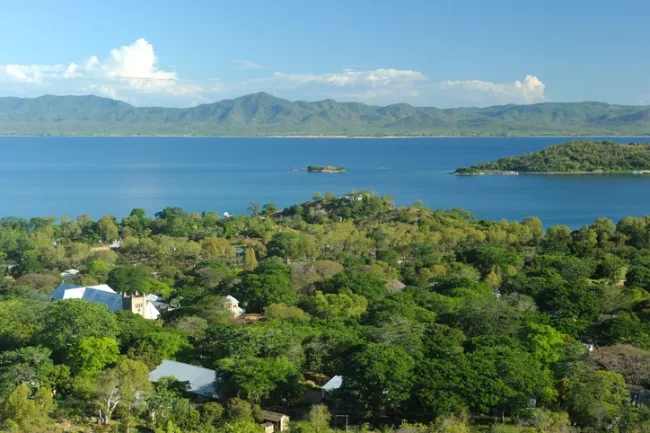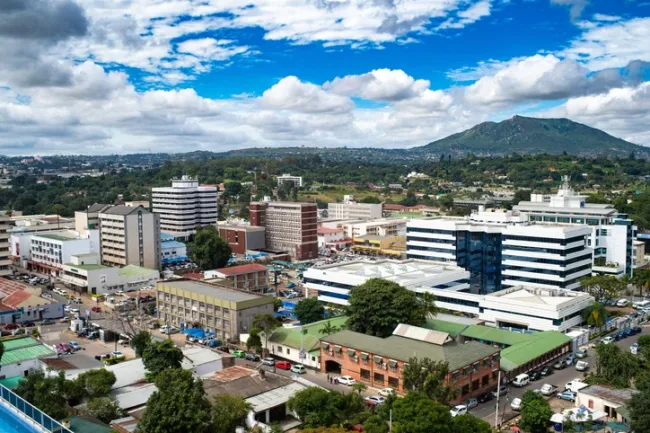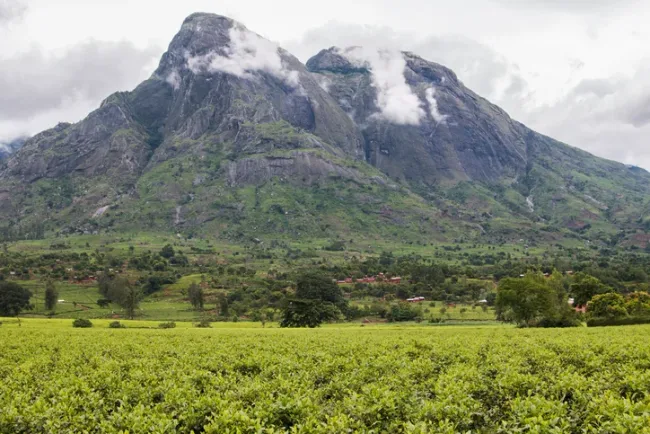
Malawi
Welcome to Malawi
Wondering if you need a visa for Malawi? You've come to the right place. This blog will help you figure out whether a visa is necessary for your trip to Malawi and, if so, which type matches your travel plans.

What’s a Malawi eVisa and who’s it for?
Who’s the Malawi eVisa for?
More than 100 countries, including Albania, Bulgaria, Cuba, Greece, and more, must apply for a Malawi eVisa before entering the country.
Who’s not eligible for a Malawi eVisa?
-
Citizens from more than 70 countries, including Belgium, China, Canada, New Zealand, and more, are visa-exempt and don’t need to apply for a visa before entering Malawi.
-
Nationals from the Southern African Development Community (SADC), except for those countries that have a visa requirement for Malawians.
-
Nationals from the Common Market for Eastern and Southern Africa (COMESA), except for those countries that have a visa requirement for Malawians.
-
Diplomats and government officials.
Can you travel visa-free, or do you need to apply for a Malawi eVisa? Use the [Visa Checker Tool] (/) to find out.
What’s the purpose of the Malawi eVisa?
-
Tourism: For travelers visiting Malawi to explore its attractions and experience its culture.
-
Business: For individuals attending business meetings or conferences or doing short-term business activities.
How long can you stay with a Malawi eVisa?
The duration of stay allowed under a Malawi eVisa depends on the type of eVisa issued:
-
A single-entry eVisa typically allows for a stay of up to 90 days.
-
A Multiple entry eVisa may allow for several visits within a specified period, with each stay generally up to 90 days per entry.
What’s a Malawi Official Visa and who’s it for?
Who’s the Malawi Official Visa for?
Individuals who hold official or service passports and are visiting Malawi on official government business.
What’s the purpose of the Malawi Official Visa?
To facilitate the entry of foreign government officials into Malawi for official purposes.
How long can you stay with a Malawi Official Visa?
The Malawi Official Visa is valid for a period of 3 months and is a single-use visa.
What’s a Malawi Courtesy Visa and who’s it for?
Who’s the Malawi Courtesy Visa for?
It's for those holding official/service or ordinary passports invited by the Malawi government or considered for international courtesy.
What’s the purpose of the Malawi Courtesy Visa?
To allow visits by individuals invited by the Malawi government or deemed necessary for international relations.
How long can you stay with a Malawi Courtesy Visa?
The visa is valid for 3 months and permits a single entry.
What’s a Malawi Diplomatic Visa and who’s it for?
Who’s the Malawi Diplomatic Visa for?
It's specifically for people holding diplomatic passports coming to Malawi for official visits or missions.
What’s the purpose of the Malawi Diplomatic Visa?
The visa allows these individuals to carry out diplomatic duties or participate in official missions within Malawi.
How long can you stay with a Malawi Diplomatic Visa?
The stay is permitted for up to 3 months, and it's a single-entry visa.
What’s a Malawi Transit Visa and who’s it for?
Who’s the Malawi Transit Visa for?
Travelers passing through Malawi to reach another destination.
What’s the purpose of the Malawi Transit Visa?
To allow short stays for those transiting through Malawi.
How long can you stay with a Malawi Transit Visa?
The transit visa is valid for up to seven days on a single-use basis.
What are the Malawian long-term visa options and who are they for?

Malawi offers a variety of long-term visa options catering to different needs, including business activities, educational pursuits, employment opportunities, and more. Here's a brief overview of some common long-term visa types available.
Study visa: Suitable for international students enrolling in Malawian schools or educational institutions. It usually doesn't permit employment except under certain conditions.
Work visa: For individuals seeking employment in Malawi, including those with a job offer from a Malawian employer or specific skills and work experience.
Business visa: For entrepreneurs or investors looking to start a business or invest in Malawi, contributing to its economy.
Residence visa: Aimed at individuals who wish to live in Malawi permanently.
It's important to note that we don’t handle these long-term visa applications. For detailed information on each visa type, application procedures, and the most up-to-date requirements, visit the Malawi Immigration website.
Staying healthy in Malawi: Here’s what you need to know
Ensuring you're in good health before your trip to Malawi is key to an enjoyable visit. Here's a general health guide that will benefit visitors to the country.
Make sure to stay updated on routine vaccines
- It's essential to be current with your routine vaccines before traveling. This includes vaccinations for measles-mumps-rubella (MMR), diphtheria-tetanus-pertussis (DPT), varicella (chickenpox), polio, and your yearly flu shot.
The following vaccines are also recommended for international visitors:
-
Hepatitis A: Advisable for anyone over a year old who hasn't received this vaccine and is traveling to Malawi.
-
Hepatitis B: Recommended for individuals under 60 years old who are unvaccinated and planning to visit Malawi.
-
Cholera: Recommended for those visiting regions in Malawi where cholera outbreaks have occurred.
-
Malaria: Prescription medicine is recommended to travelers to prevent malaria. Depending on the medicine you take, you may need to start taking it days before your trip, as well as during and after your journey.
-
Measles: A dose of the MMR vaccine is recommended for infants aged 6 to 11 months before traveling.
-
Rabies: This vaccine is recommended for travelers involved in outdoor activities that might expose them to animal bites or those working with animals.
-
Polio: Adults who have been vaccinated should receive a booster dose, and those who have not should complete the vaccine series before their trip.
-
Typhoid: Especially recommended for visitors to rural areas, smaller towns, or those staying with locals.
-
Yellow fever: Mandatory for travelers coming from countries with a risk of yellow fever virus transmission.
-
Stay informed about the latest COVID-19 travel advisories for Malawi, including any quarantine, testing, or vaccine documentation requirements. For up-to-date information, consult your airline or check the Ministry of Health website.
Medical facilities
-
In the countryside, healthcare facilities are more basic, and emergency services may be scarce.
-
Private healthcare is often preferred by many international visitors because of the wider selection of services and access to specialists.
-
You'll find pharmacies in cities and urban areas, stocking various over-the-counter drugs. However, if there's a particular prescription medication you need, it's better to bring it with you.
Health insurance
It’s really important to have travel health insurance for your entire trip.
Healthcare, especially in private facilities, can get expensive. Make sure your insurance covers significant health costs, including if you need to be evacuated for medical care.
Double-check with your insurance provider to confirm your policy covers:
-
Refunds for any travel mishaps, like cancellations or delays.
-
Costs for medical treatments and possible medical evacuation.
-
Compensation for lost baggage.
Things to be aware of when visiting Malawi

1. Food and water safety: To minimize the chances of health issues, drink only bottled water and be cautious with raw or undercooked meals.
2. Rainy season: From November to April, Malawi's rainy season can disrupt road travel and cause flooding, making some regions hard to reach. Check the Department of Climate and Meteorological Services website for the latest weather updates.
2. Safety in outdoor adventures: Outdoor activities such as climbing Mulanje Mountain can be dangerous. Never go alone and always stay with your group. For safety tips, reach out to the Mountain Club of Malawi before attempting to climb.
Medication for personal use
For those taking medication to Malawi, here’s what you need to know:
-
Declare all medications: Make sure to declare any medications at customs, particularly prescription or controlled substances.
-
Original packaging is a must: Always keep medications in their original packaging, clearly labeled with your name and the prescription information.
-
Carry a prescription or doctor's note: Bring along a note from your doctor or a recent prescription that details why you need the medication.
-
Check for restrictions: Double-check with the embassy or consulate of Malawi to ensure no bans or restrictions on your medications.
-
Bring only what you require: To avoid any issues, only take the medication necessary for your trip.
Related Articles


 Australia ETA Online
Australia ETA Online
 United Kingdom ETA
United Kingdom ETA
 India Tourist eVisa
India Tourist eVisa
 Canada ETA Visa
Canada ETA Visa
 Turkey eVisa
Turkey eVisa
 Egypt eVisa
Egypt eVisa
 Singapore SG Arrival Card
Singapore SG Arrival Card
 Indonesia eVoa Visa
Indonesia eVoa Visa
 Aruba ED Card
Aruba ED Card
